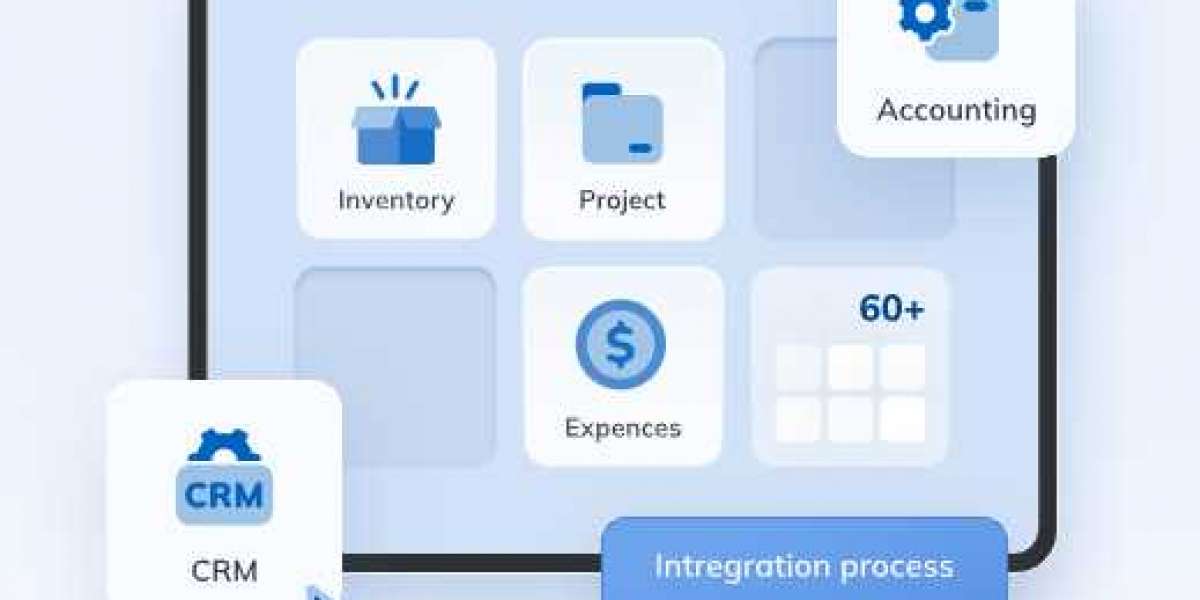In the digital age, streamlining operations, automating processes, and enhancing productivity are critical for business success. Enterprise Resource Planning (ERP) systems are essential tools that help organizations manage all facets of their operations—from inventory and finance to customer relationship management (CRM) and human resources. Among various ERP platforms available today, Odoo stands out for its flexibility, affordability, and modularity.
What Is Odoo?
Odoo is an open-source ERP platform that offers a wide range of integrated business applications. These include modules for:
Accounting
Inventory management
Sales and CRM
eCommerce
Manufacturing (MRP)
Project management
HR and payroll
Marketing automation
Odoo is highly modular, meaning you can start with a few basic apps and scale as your business grows. Whether you're looking for a complete ERP suite or specific modules, Odoo adapts to your needs.
Why Businesses in the USA Choose Odoo
1. Cost-Effective
Compared to traditional ERP solutions like SAP and Oracle, Odoo is significantly more affordable. Its open-source nature eliminates expensive licensing fees, and its modularity lets businesses implement only the features they need.
2. Flexibility
Odoo can be customized extensively. Whether it's a unique workflow or integration with third-party software, Odoo's open architecture allows for full flexibility.
3. Scalability
Start small and expand. Odoo grows with your business, allowing you to add modules and users as needed.
4. Cloud-Based or On-Premise
You can choose to host Odoo in the cloud or on-premise, depending on your IT strategy, compliance requirements, and budget.
5. Strong Community and Partner Ecosystem
Odoo is backed by a global community of developers, and a robust network of official partners—particularly strong in the United States—who offer professional implementation, customization, and support services.
Key Components of Odoo Implementation Services
Implementing Odoo is not just about installing software—it’s a strategic business transformation. Here's what a typical Odoo implementation service involves:
1. Business Analysis and Requirement Gathering
Before any technical work begins, implementation partners will analyze your business processes to understand your unique requirements.
2. System Design and Planning
Based on the analysis, a blueprint is created for the system architecture, module selection, data migration strategy, and timeline.
3. Customization and Development
Out-of-the-box Odoo may not always meet all business needs. Custom modules or features might be developed to fill the gaps.
4. Data Migration
Accurate and secure migration of data from legacy systems is critical. This includes customer records, invoices, inventory, and more.
5. Integration
Odoo needs to work seamlessly with other systems like eCommerce platforms, payment gateways, shipping services, or legacy software. Implementation services include setting up these integrations.
6. User Training
A well-implemented system is only effective if users know how to use it. Comprehensive training is provided to staff and stakeholders.
7. Testing
Before going live, the system undergoes rigorous testing to ensure everything functions as expected.
8. Go-Live and Support
The final phase includes launching the system and providing ongoing support and troubleshooting to ensure smooth operations.
Challenges of Odoo Implementation
While Odoo offers powerful features, its implementation can be complex. Some common challenges include:
Incorrect module selection
Poor data migration planning
Inadequate user training
Customization bottlenecks
Integration issues
These challenges highlight the importance of working with a reliable and experienced odoo implementation partner in usa who understands the local market and compliance requirements.
How to Choose the Right Odoo Implementation Partner in USA
Selecting the right implementation partner can make or break your ERP project. Here’s what to look for:
1. Odoo Certification
Choose a partner that is officially recognized by Odoo. Certified partners have direct access to Odoo resources, training, and support.
2. Industry Experience
Check if the partner has worked with businesses in your industry. Each sector has unique needs, and relevant experience ensures better alignment.
3. Portfolio and Case Studies
Review past projects. Ask for case studies, references, or testimonials to assess the partner’s capabilities.
4. Customization Expertise
Ensure the partner has skilled developers who can customize the platform according to your business logic and processes.
5. Support Services
A good partner will offer ongoing support, bug fixes, upgrades, and performance monitoring after go-live.
6. Clear Pricing Structure
Look for transparency in cost. Understand whether the pricing is fixed, hourly, or milestone-based.
Top Use Cases of Odoo in Different U.S. Industries
1. Retail and eCommerce
Odoo helps manage inventory, sales, and customer service while integrating with platforms like Shopify and Amazon.
2. Manufacturing
With its powerful MRP module, Odoo is ideal for managing production lines, work orders, and supply chains.
3. Healthcare
Hospitals and clinics use Odoo to manage appointments, billing, inventory, and HR in a HIPAA-compliant manner.
4. Education
Odoo can automate admissions, student data management, and course scheduling for schools and universities.
5. Professional Services
Consulting firms use Odoo for project tracking, time management, invoicing, and CRM.
Odoo Implementation Timeline
The duration of an Odoo implementation depends on the project's complexity and scale:
| Business Size | Estimated Timeline |
|---|---|
| Small Business | 1–3 months |
| Medium Enterprise | 3–6 months |
| Large Enterprise | 6–12 months |
A clear roadmap, proper resource allocation, and regular check-ins can significantly shorten implementation timelines.
Cost of Odoo Implementation in the USA
The cost can vary widely depending on the number of modules, customization, data volume, and user count. Here’s a general range:
Small business: $10,000 – $25,000
Mid-sized business: $25,000 – $75,000
Large enterprise: $75,000+
Keep in mind that ongoing costs such as hosting, support, and upgrades also need to be considered.
Best Practices for Successful Odoo Implementation
To ensure a smooth and successful Odoo deployment, consider the following best practices:
Start with a pilot phase: Implement Odoo in one department before full-scale rollout.
Involve end-users early: Their input ensures practical customization and higher adoption rates.
Don’t skip documentation: Keep a record of workflows, changes, and training.
Prioritize change management: Help employees adapt through proper communication and training.
Choose the right partner: Collaborate with a trusted odoo implementation partner in usa for strategic guidance and execution.
Future of Odoo in the U.S. Market
Odoo continues to expand its footprint in the U.S. ERP market, especially among SMBs looking for affordable digital transformation solutions. With regular version updates, a growing partner network, and increased localization features, Odoo is well-positioned for sustained growth.
Emerging technologies like AI, machine learning, and IoT are also being integrated into Odoo, offering even greater automation and insights for businesses.
Conclusion
Odoo is an incredibly powerful and flexible ERP solution that can bring tremendous value to businesses of all sizes. However, its successful implementation depends heavily on strategic planning, the right technology choices, and a skilled implementation team.
Whether you’re embarking on your first ERP journey or transitioning from a legacy system, working with a reliable odoo implementation partner in usa ensures that your investment in Odoo yields maximum ROI.
Ready to take the next step? Consider consulting with an expert Odoo partner to assess your needs and plan a smooth implementation journey tailored to your business.







